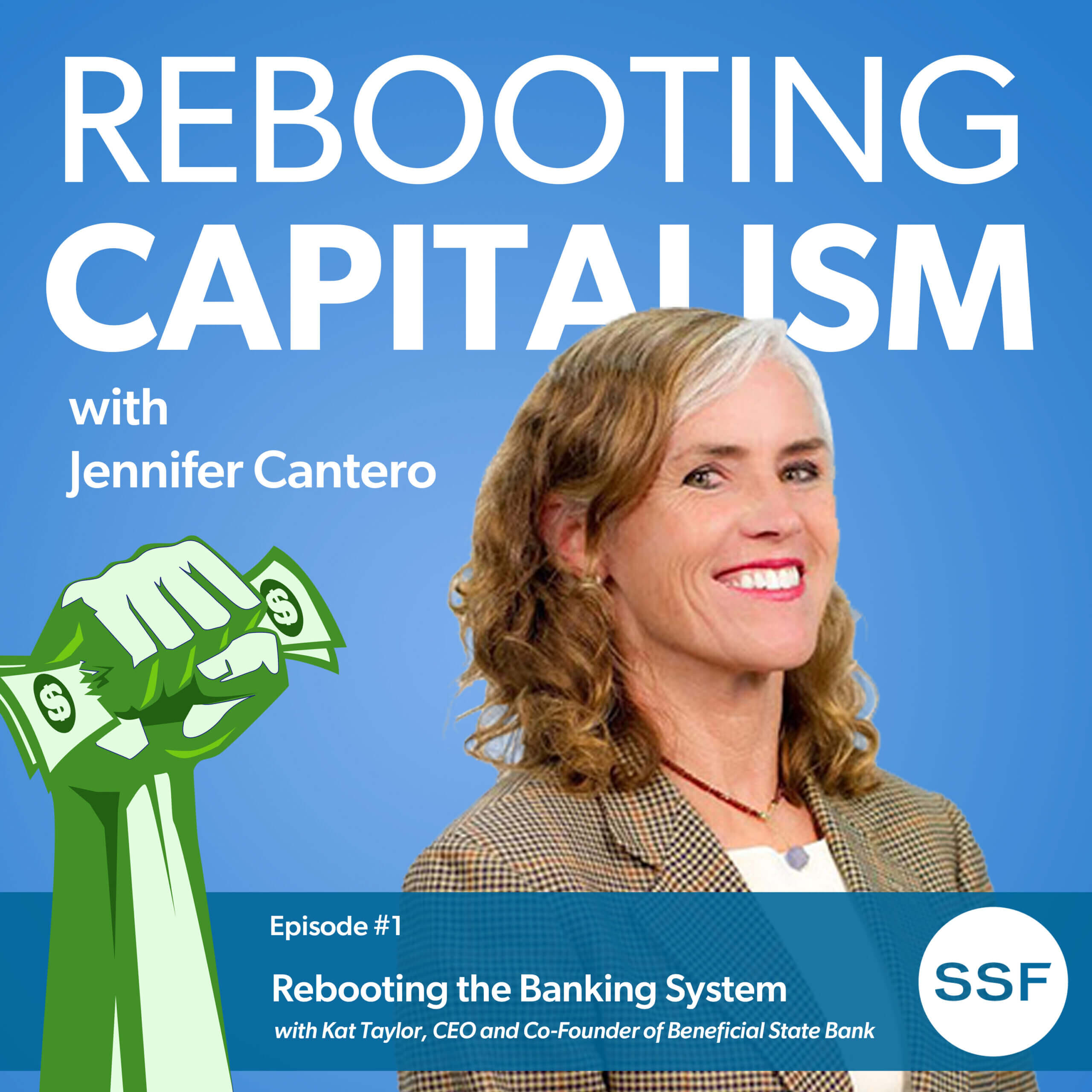
Episode #1 — Reforming Banking for the Greater Good
Kat Taylor, CEO and Co-Founder of Beneficial State Bank
We all know the banking systems is broken. 2008 is proof of that. If we are going to reboot capitalism to work for the common good, then banking is going to have to be one of the first business sectors to rebuild their reputation and trust. Kat and I are going to dig into the history of banking, where it went wrong and what changes are needed.
Show Notes
Welcome to the very first episode of Rebooting Capitalism! We are so excited to be bringing this show to you and having important conversations about capitalism, why it’s broken, and what people are doing to fix it. We have an amazing guest to kick things off with: Kat Taylor, the CEO and Co-Founder of Beneficial State Bank.
Beneficial State Bank opened in 2007 under a unique foundation ownership model and has 17 local branches throughout California, Oregon and Washington. They offer checking, savings, loans, credit cards, online and mobile banking and everything else you’d expect from a bank—but they exist to serve their customers’ prosperity and goals, not to profit from them.
In this interview, Kat Taylor talks about the history of banking, why banking needs serious reform, and how Beneficial State is creating a triple bottom-line bank that is accountable to its customers, our society, and the planet – rather than rich stakeholders. Kat shares important design decisions that form Beneficial State’s structure and ethos, and talks about why the banking sector can be a great lever for change.
- How and why business – and especially banking – can and should be harnessed as a force for positive change.
- The history of banking in the US and why banks are distrusted by many Americans.
- The role of banks in society and how they could help, rather than hinder, more people.
- How Kat Taylor and Beneficial State Bank are redesigning the banking model and ownership structure.
- How Beneficial State Bank is combatting discriminatory banking practices like redlining.
- Why Kat believes businesses have to choose diversity consistently if we want more and different people in leadership positions throughout society.
What You'll Learn
Links Mentioned
Disclaimer
Rebooting Capitalism is a podcast sponsored by Sensiba LLP. The statements, discussions, opinions, and other commentary provided within the program are solely intended for discussion purposes and do not constitute legal or professional advice. Listeners and participants should seek independent legal or professional advice. The views and opinions expressed in this podcast are those of the host and guests and do not necessarily reflect the views or positions of Sensiba LLP. Sensiba LLP does not assume any responsibility or liability for the accuracy, completeness, or reliability of any information discussed within the program.
By accessing or participating in the program, listeners and participants agree to these terms and conditions, acknowledging that they have read and understand the disclaimer and agree to be bound by its provisions.